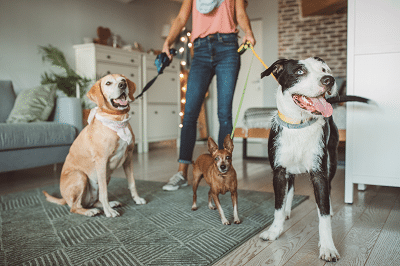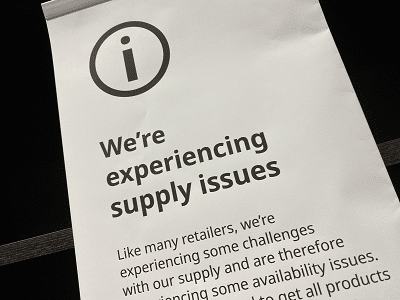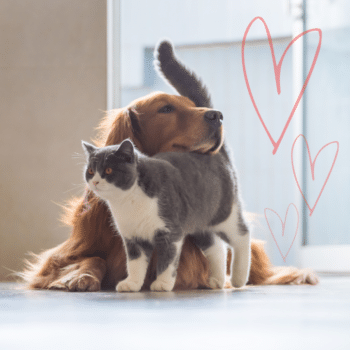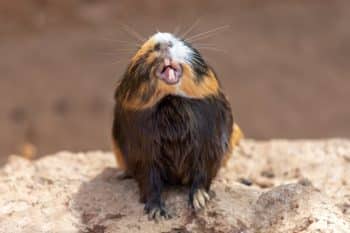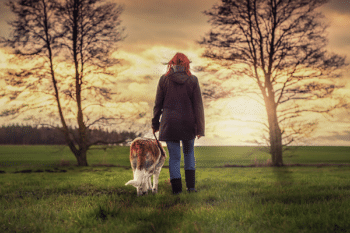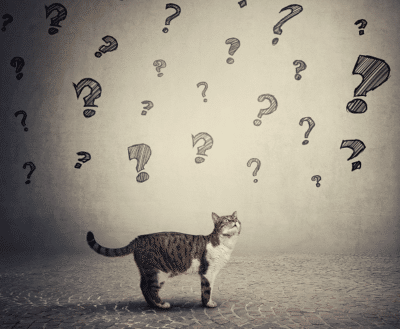When we as humans grieve the loss of someone special, our behaviors change. We may lose our appetite, seclude ourselves from others, and lose interest in the activities we normally enjoy. Pets aren’t much different. Here are a few of the most common behaviors seen in a grieving pet and some guidance for supporting them through this difficult experience
Change in appetite. Usually, a grieving pet will be less interested in eating at the beginning of the grieving period. Do not try to force your pet to eat or offer something “special” like people food or an abundance of treats, as this can upset the stomach or create an aversion to the regular diet when the grieving period has ended. A decrease in appetite should not last long, however. Cats and dogs should show some return to normal appetite within 24-48 hours. Rabbits and guinea pigs, however, should be eating well within several hours. If your pet’s appetite does not return, contact your veterinarian for advice.
Social distancing. For a time, a grieving pet may be less interested in socializing with the humans or other pets in the home. Your dog may be less interested in walking with you, your cat may find a new hiding spot, or your guinea pig may spend more time in his hut. Allow this to happen but ensure routine activities, such as eating, grooming, and toileting, are still happening. Spending extra time with your pet can be tempting because you’re also grieving, but forcing this kind of attention may cause them additional stress.
Seeking and vocalizing. Some pets may wander around the home looking for, or calling to, their lost friend. This is a good time to provide your pet with some extra attention and mental stimulation. For dogs used to having a playmate, go on longer walks and work on some new tricks. Cats can be kept occupied with interactive play and puzzle feeders. If your rabbit loses its bonded mate, providing your rabbit with a lifelike stuffed rabbit toy will give him some comfort. If possible and safe to do so, allowing the surviving rabbit to view its mate’s deceased body can also minimize the grief and confusion.
This list is not exhaustive but describes some of the most likely behavioral changes you’ll notice when your pet is grieving the loss of another pet. It’s important to note that some of these changes can be sickness behaviors in disguise so it’s important to consult your veterinarian if something doesn’t seem quite right. You should also consult your veterinarian if your pet becomes anxious, destructive, or aggressive after the loss of another pet (and in general).
Don’t rush out to get another pet…or maybe do! Each species has a natural way of forming social structures and relationships. On one end, cats are, by nature, solitary animals and typically tolerate each other within a household rather than form emotional bonds. On the other end, rabbits, guinea pigs, and some birds are, by nature, very social animals and generally need to bond with a mate. Because of this social requirement, it is generally advised to find a mate as soon as possible (albeit with appropriate, gradual introductions). If you do intend to find another mate right away, check with your veterinarian first in case the lost pet was suffering from an infectious disease or parasite that could jeopardize the health of the others.
Time may heal all wounds. Remain attentive and supportive for your grieving pet during this difficult time and they may heal a little stronger for both of you.
LifeLearn News
Note: This article, written by LifeLearn Animal Health (LifeLearn Inc.) is licensed to this practice for the personal use of our clients. Any copying, printing or further distribution is prohibited without the express written permission of Lifelearn. Please note that the news information presented here is NOT a substitute for a proper consultation and/or clinical examination of your pet by a veterinarian.


